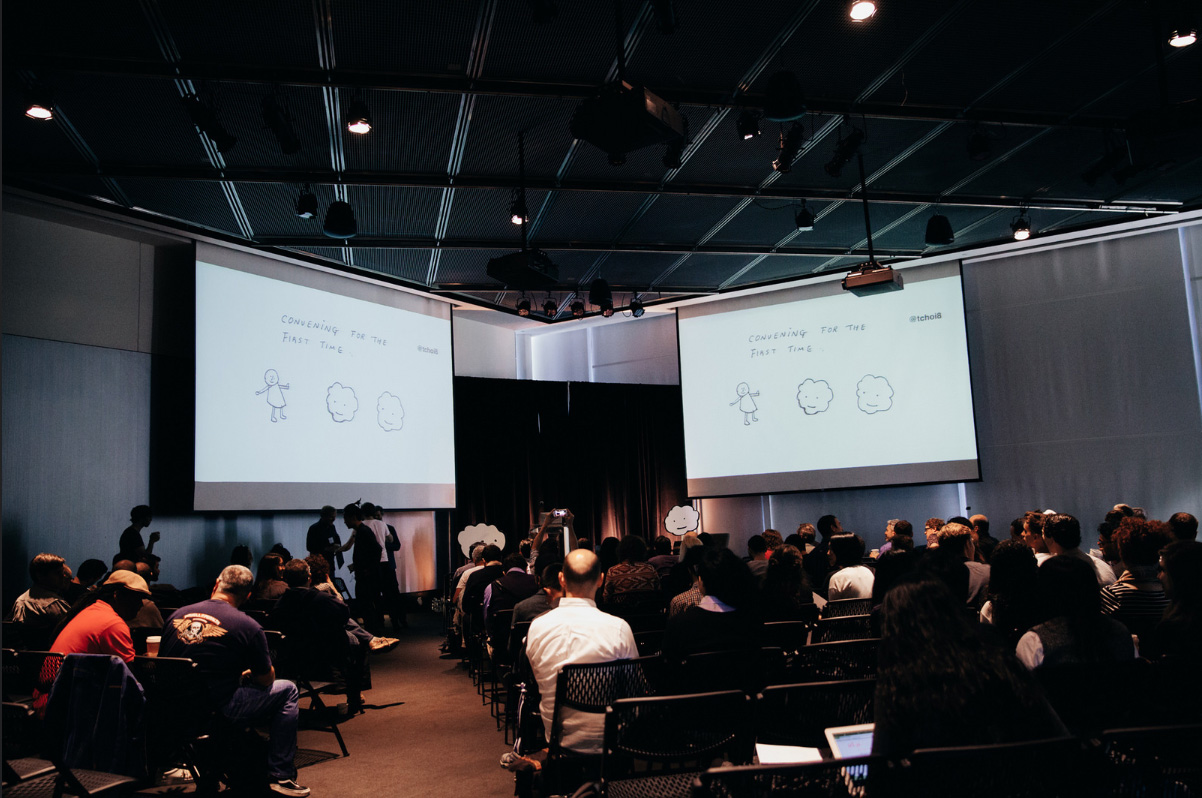Inclusive coding event hopes to encourage art, activism in the field

Processing Community Day aims to teach individuals the basics of computer programming and coding in art. Lauren McCarthy, an assistant professor at UCLA, worked with the lead organizer of the event. (Courtesy of Processing Foundation)
Processing Community Day
Saturday, Jan. 19
Broad Art Center
Prices Vary
By Julie Lee
Jan. 17, 2019 9:32 p.m.
Lauren McCarthy wanted to bring coding and activism together in a way that is interactive and accessible.
To do so, she worked with Xin Xin, the director and lead organizer of Processing Community Day, and Casey Reas, a design media arts professor and the co-creator of Processing, a software that allows coding within the visual arts. Together, they conceptualized Processing Community Day, the first of which was held a year ago in Boston with the second installment taking place Saturday at UCLA’s Broad Art Center. McCarthy, an assistant professor within UCLA’s design media arts department, said the event aims to teach individuals about the basics of computer programming and help them integrate coding into the world of art.
“The idea of Processing Community Day was to think about coding as a way of creating media and bring coding into the visual arts, including design and architecture,” Reas said.
McCarthy said Processing lets users take classes on drawing, interactive media and software prototyping, but most of the work the program has done so far was only online. Seeing it as an opportunity to create a community in real life, Processing Community Day was born.
“We wanted to have a day to do it in person, to connect and share ideas, and to see what may come out of it,” McCarthy said.
McCarthy said the focus on art, code and activism during the event arose in an attempt to make the subjects more inclusive and accessible to the general public. For instance, around 2001, new tools like Adobe Acrobat, which were used to put art and code together, were only accessible to large institutions and were often expensive. The focus of Processing Community Day is rooted in the realization that such tools should not be limited only to those who have access to higher education and large budgets, McCarthy said.
Many other barriers halt people from pursuing their interest in software she said, including network access, disability and race. Open source software would benefit those who are interested in programming but feel out of place in this area. In addition, the in-person event will help those who feel unwelcome into the world of code by providing a welcoming environment for them to hone their skills.
“The activism part for us feels like the place that we need to start from if we really want to make these tools work for people, because it wouldn’t be very meaningful to be working in a space of art when only a small part of the population feels like they can participate,” McCarthy said.
The event will include workshops, demonstrations, art exhibitions and lightning talks, which are very short presentations about various resources that Processing can provide. Participants in the event will be able to choose one of four tracks, or courses, to follow throughout the day: “Accessibility, Disability, and Care,” “Radical Pedagogy,” “Epic Play!,” and “Under the Silicon, the Beach!”
The idea behind creating multiple tracks is that it allows flexibility for people to choose their own adventure. For example, noncoders, such as journalists and artists, might choose to listen into a lighting talk about coding to learn more about a field they haven’t had a chance to be exposed to.
“It’s the community’s day,” McCarthy said. “It’s less about us trying to impose a certain set of ideas, and more about making a space where people can bring their own.”
Leaders of Processing Community Day expressed their anticipations for the upcoming event.
“I’m interested in seeing what kind of sparks come out of having people who are all experienced in different fields attend this kind of event under a big umbrella of processing,” Xin said. “What is most exciting about this event are the different possibilities of people stumbling into lightning talks and stations that might open up ideas that are not present in their discipline.”


